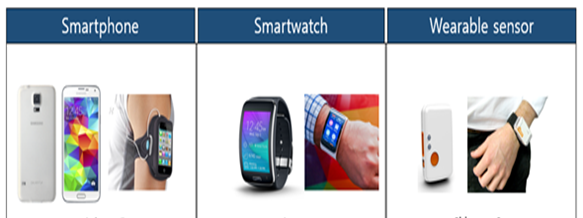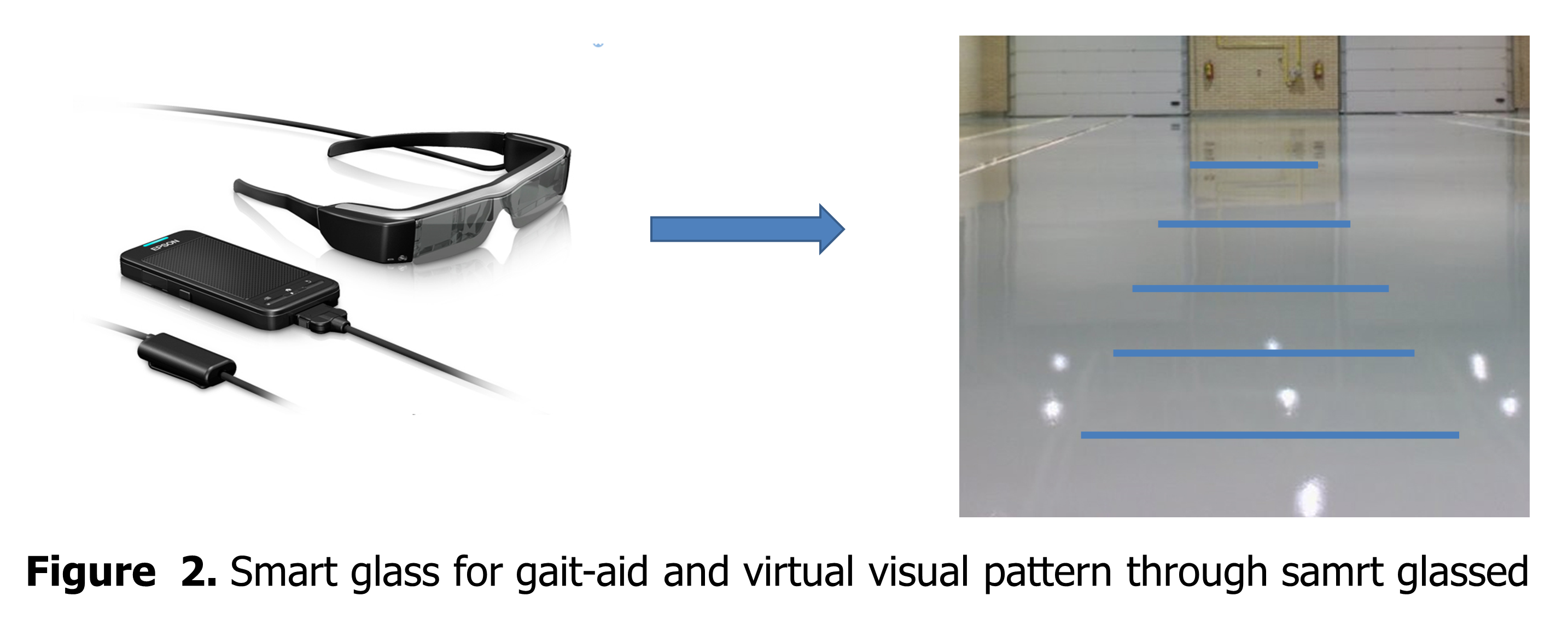Session Information
Date: Sunday, October 7, 2018
Session Title: Technology
Session Time: 1:45pm-3:15pm
Location: Hall 3FG
Objective: A recent our study showed that the typical parkinsonian syndrome patients experiencing freezing of gait could be significantly improved by using smart glasses. We did a study to see if this system is also available for atypical parkinsonian syndromes patients.
Background: Parkinsonism is defined as a hypokinetic syndrome and is characterized by the presence of resting tremor, muscular rigidity, bradykinesia or akinesia, and postural instability. Atypical parkinsonian syndromes patients present with atypical features such as freezing of gait, frequent falls, or ataxia. In these syndromes, treatment with standard therapies frequently lacks efficacy and is fraught with complications.
Methods: Our android based gait-aid system continuously monitors the gait of an atypical parkinsonian syndromes patient to detect freezing of gait with wearable sensors, and upon detection of freezing of gait, it projects the most effective visual patterns on the glasses as if the patterns were actually on the floor (figure).
Results: We demonstrate that our system improves the gait speed and stride length of atypical parkinsonian syndromes patients by 20% and 22%, respectively. Moreover, our system is much safer than the existing systems where the visual patterns may block the wearer’s sight.
Conclusions: Our gait-aid system based on smart glasses can be adapted for and applied to as freezing of gait of atypical parkinsonian syndromes.
To cite this abstract in AMA style:
H. Lee, B. Jung. Usefulness of gait-aid system using smart glasses for freezing gait of atypical parkinsonian syndromes [abstract]. Mov Disord. 2018; 33 (suppl 2). https://www.mdsabstracts.org/abstract/usefulness-of-gait-aid-system-using-smart-glasses-for-freezing-gait-of-atypical-parkinsonian-syndromes/. Accessed December 13, 2025.« Back to 2018 International Congress
MDS Abstracts - https://www.mdsabstracts.org/abstract/usefulness-of-gait-aid-system-using-smart-glasses-for-freezing-gait-of-atypical-parkinsonian-syndromes/


